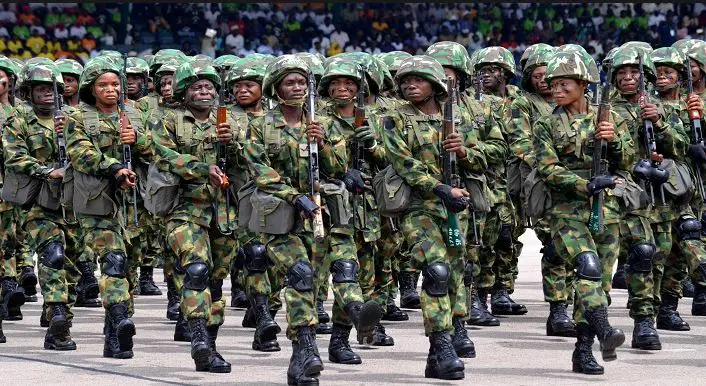WASHINGTON — The U.S. military is developing plans for potential intervention in Nigeria following President Donald Trump’s order to “protect Christians from attack by Islamic militants.” However, defense officials caution that any American action is unlikely to resolve the country’s long-running insurgency without a full-scale campaign akin to Iraq or Afghanistan — a move few in Washington support.

Officials from U.S. Africa Command (AFRICOM), based in Stuttgart, Germany, have outlined three possible courses of action: light, medium, and heavy. The options range from limited intelligence-sharing with Nigerian forces to large-scale air and naval operations.
-
The Light Option focuses on partner-enabled missions, assisting Nigerian troops with intelligence and logistics to target Boko Haram and Islamic State West Africa Province (ISWAP) militants.
-
The Medium Option includes drone strikes on insurgent bases and convoys in northern Nigeria, though the U.S. currently lacks nearby drone bases after vacating sites in Niger now occupied by Russian forces.
-
The Heavy Option involves deploying an aircraft carrier group to the Gulf of Guinea for extended air operations — a move officials admit is unrealistic given global military commitments.

Defense analysts warn that any direct strikes would likely have limited impact. “It would be a fiasco,” said Maj. Gen. Paul D. Eaton (Ret.), noting that U.S. public support for another major foreign military campaign remains low.
Officials also point out that the violence in Nigeria is not purely sectarian but rooted in land disputes, corruption, and ethnic tensions. While militant groups have attacked Christians, they have also targeted Muslims seen as insufficiently devout.
The Nigerian government has stated it welcomes American intelligence and logistical aid — but insists that any foreign operation must respect the nation’s sovereignty.
Meanwhile, President Trump’s directive and Defense Secretary Pete Hegseth’s swift online affirmation have raised eyebrows among security officials, some of whom remain unsure how the Pentagon can translate the president’s social media order into practical policy.
For now, U.S. planners acknowledge that any military engagement would be symbolic at best, offering minimal relief to a complex conflict that has claimed thousands of lives across Nigeria’s north over the past two decades.




